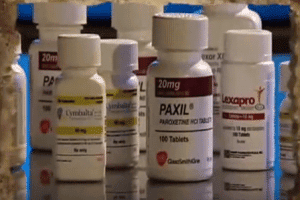
Effects Of Drug Marketing. Drug makers have long been criticized for how they convince physicians and patients to use their products, sometimes using some less-than-ethical marketing approaches. Now, a survey looked at the effect of these drug marketing campaigns on family nurse practitioners (FNPs), reports Science Daily. FNPs can prescribe medications and are doing […]

Effects Of Drug Marketing. Drug makers have long been criticized for how they convince physicians and patients to use their products, sometimes using some less-than-ethical marketing approaches. Now, a survey looked at the effect of these drug marketing campaigns on family nurse practitioners (FNPs), reports Science Daily. FNPs can prescribe medications and are doing so with increased frequency.
The survey, which was published in the March issue of the United Kingdom’s Journal of Advanced Nursing, concludes that FNPs should be more aware of the pressures to prescribe medications based on their ads, said Science Daily.
“Our detailed study of 84 family nurse practitioners (FNPs) showed low awareness of how marketing by pharmaceutical companies affects clinical decisions and creates conflicts of interest” said Dr. Nancy Crigger, an FNP from William Jewell College, Missouri, quoted Science Daily. “However, they were clear that some marketing activities, promotional items and gifts were less ethical and acceptable than others,” Dr. Crigger added.
Dr. Crigger noted, “The influence of marketing on physician prescribing has been widely researched and this indicates that the more involved physicians are in marketing, the less likely they are to recognise when their clinical judgment has been compromised. Our study suggests that the same is now happening to FNPs who have been given greater responsibility for prescribing some types of medication,” reported Science Daily.
The survey found that five percent of FNPs questioned admitted that pharmaceutical reps influenced their prescribing choices and most admitted to sometimes being influenced by the reps, while 17 percent said they were influenced by pharmaceutical marketing and 14 percent believed pharmaceutical reps likely crossed boundaries with their gift giving practices, said Science Daily.
Nearly half felt it was neither acceptable nor ethical to accept inexpensive gifts; however, 62 percent accepted samples, 50 percent accepted educational items, 41 percent accepted office supplies, and 30 percent accepted office equipment, noted Science Daily.
“Our study suggests that pharmaceutical marketing is widespread among FNPs and that FNPs fail to recognise how they are being influenced by this practice and that greater involvement in marketing may reduce their critical assessment of such practices” said Dr. Crigger, adding, “It points to the need for all FNPs to evaluate their personal attitudes and practices concerning the ethical appropriateness of accepting gifts, meals, educational programmes, and trips from pharmaceutical companies.
We believe that prescription decision-making should be based on the best interests of patients and on maintaining the trust of the patients and the public … FNPs should avoid situations that could create a conflict of interest,” quoted Science Daily.
Another recent study on drug advertisements found that consumers could make better decisions on which medication to use if packaging provided better messaging. According to Dr. Steven Woloshin, associate professor of medicine and community and family medicine at Dartmouth Medical School and co-author of the study said, “They get exposed to billions of dollars of ads, but the ads don’t tell them the most fundamental information they need,” reported HealthDay News in an earlier report.
Dr. Woloshin pointed out that current advertising “Can be very misleading,” saying, “For example, they say this drug reduces your risk of stroke by 30 percent, but they won’t tell you 30 percent of what,” he said, reported HealthDay.
Dr. David L. Katz, director of the Prevention Research Center at Yale University School of Medicine, agreed saying in the prior HealthDay piece that, “Direct-to-consumer drug advertising is controversial in medical circles, largely out of concern that drug companies will talk patients into preferences not in their best interest.”
The personal injury attorneys at Parker Waichman LLP offer free, no-obligation case evaluations. For more information, fill out our online contact form or call 1-800-YOURLAWYER (1-800-968-7529).


